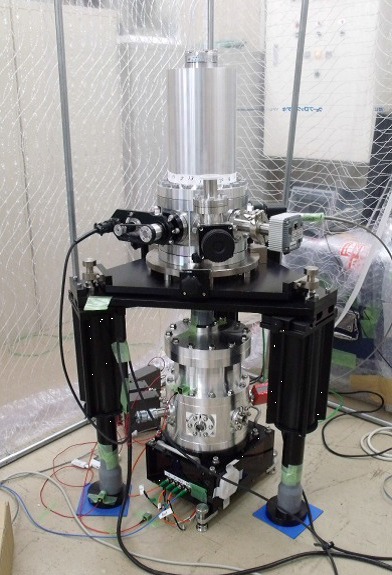Research Projects | Geodetic Space Sensor Technology and Gravity Field
Improved compensation of vibrational noise in the laser interferometer with applications in absolute gravimetry
| Led by: | Dr. Sergiy Svitlov |
| E-Mail: | svitlov@ife.uni-hannover.de |
| Year: | 2011 |
| Funding: | DFG |
| Duration: | 2011 - 2018 |
| Is Finished: | yes |
| Further information | http://gepris.dfg.de/gepris/projekt/190679127?language=en |



The project is devoted to the development and realization of an innovative concept of the vibration-compensated two-arm laser displacement interferometer in order to improve accuracy of absolute gravimetry. Within this concept the first channel (an absolute gravimeter) measures an additive combination of gravitational and vibrational accelerations, and the second one synchronously measures only vibrational accelerations, acting on the reference reflector, rigidly coupled with an accelerometer. Based on the developed theory of frequency-domain analysis of an absolute gravimeter, the relevant correction is computed and applied to the measurement result. The concept was proven during experiments with the free-fall absolute gravimeter of the Earthquake Research Institute of the University of Tokyo in Japan, where improvement of precision by factor 100 was observed. Within this continued project it is necessary to implement the project developments in different absolute gravimeters and adapt the developed data processing algorithms to actual measurement conditions. The main steps include development and modifications of the self-adaptive filtering algorithms and vibration compensation systems, development of digital fringe signal processing methods for symmetrical rise-and-fall absolute gravimeters and metrological characterization of the improved instruments at the Institute for Geodesy at the Leibniz University of Hanover (LUH) in Germany, Institute for Metrological Research (INRIM) in Italy and Earthquake Research Institute in Japan. The improved accuracy of absolute gravity measurements will have strong impacts on geophysics, volcanology, geodesy, inertial navigation and fundamental metrology.




